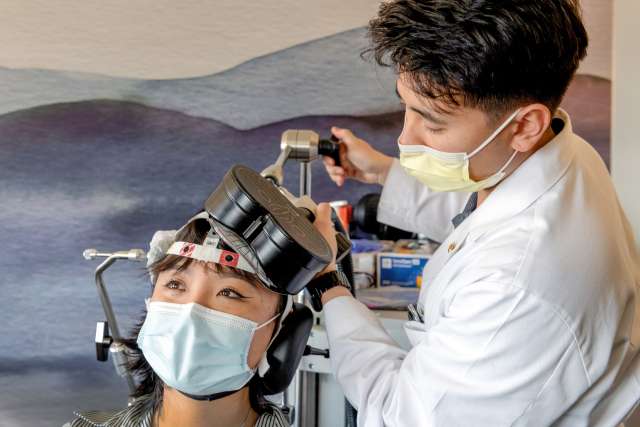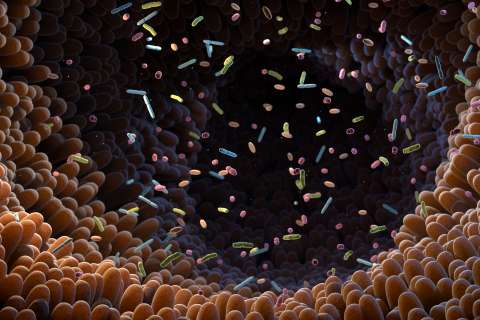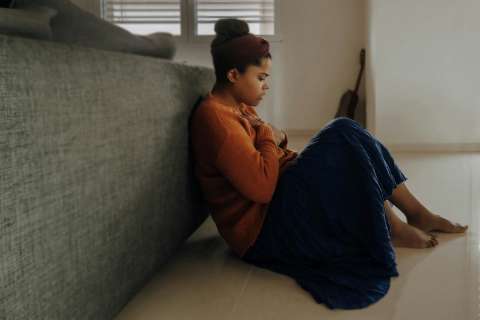Nearly 15 years after it was approved by the U.S. Food and Drug Administration as a treatment for depression that doesn’t improve with medication, a noninvasive therapy that “resets” the brain’s neural circuits produces impressive results as an approach for depression. New techniques developed at UCLA can relieve symptoms of depression in as quickly as one week. Transcranial magnetic stimulation (TMS) applies a series of gentle electromagnetic pulses, similar to those in an MRI machine, to targeted areas of the brain. This stimulation enhances neuroplasticity — the brain’s ability to form new nerve cell connections and escape the negative patterns of mood disorders, explains Andrew F. Leuchter, MD, Distinguished Professor of Psychiatry at the Jane and Jerry Semel Institute for Neuroscience and Human Behavior at UCLA.
“This is fundamentally different from medications; essentially, it’s brain- network therapy,” says Dr. Leuchter, who directs UCLA Health’s TMS Clinical and Research Service. “For people with depression, brain circuits can become stuck in recurrent negative feedback loops. By stimulating mood-regulating networks, we essentially “rewire” those circuits and enable the brain to form new connections, promoting recovery from depression.”
TMS traditionally involves five-day-a-week treatment for six weeks, followed by a taper of six additional sessions. Each session lasts between 10 and 45 minutes. TMS therapy is a covered benefit under most insurance, and approximately two-thirds of the patients treated at UCLA get substantial relief from depression.
UCLA’s TMS program has pioneered a “precision” approach, individualizing treatment to help even more patients recover from depression. Patients see a psychiatrist at every visit who monitors their progress and refines treatment as necessary. MRIs can be used to target specific areas of the brain and produce optimal results based on each patient’s symptoms. The program is also conducting research to improve outcomes by identifying the ideal stimulation frequency (“resonant frequency,” or RF) for each individual using an electroencephalogram (EEG). Delivering treatments that induce “resonance” in the brain has the potential to help patients recover more quickly, Dr. Leuchter notes.
The TMS program now is offering an accelerated approach treatment in which patients receive five sessions a day for five days. Although this “five-by-five” approach is not yet covered by insurance, initial results indicate that it helps many patients recover from depression in as quickly as one week.
UCLA is making TMS more accessible and affordable. “We have developed shorter, more efficient treatment protocols to bring down costs” Dr. Leuchter reports. UCLA recently expanded its TMS program, adding new clinics in Pasadena and Calabasas, along with the Westwood clinic . The program now better serves patients throughout Greater Los Angeles.
In recent years, the UCLA TMS team has developed cutting-edge approaches to treat other illnesses for which standard treatments are limited. “TMS can relieve symptoms of other conditions including obsessive-compulsive disorder, chronic pain, tinnitus (persistent ringing in the ear) and post-traumatic stress disorder,” Dr. Leuchter states. “Many of these patients also are depressed, so we simultaneously treat their depression, chronic pain and other symptoms.”
TMS requires no sedation and has an excellent safety record. Side effects, including discomfort at thesite of stimulation, mild headaches and fatigue, usually resolve after the first few treatments. The treatment carries a very small risk of seizure — about one-in-30,000 patients. “The side effects from TMS are commonly more benign than medication,” Dr. Leuchter says. “And people with depression who have not benefited from medication are more likely to have their symptoms improved with TMS than by going on a different drug.
Help Shape the Future of Mental Health by Joining the UCLA Mental Health Research Registry




